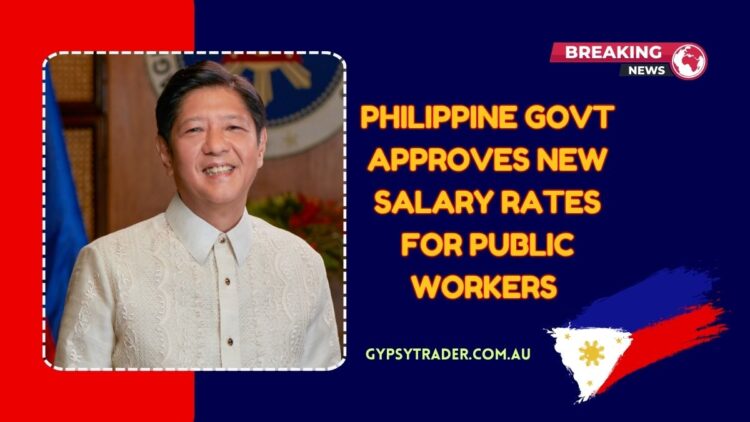In a major development for civil servants, the Philippine government has confirmed a salary increase for all eligible public employees starting January 2025.
This is the final tranche of the Salary Standardization Law V (SSL V), a multi-year initiative aimed at aligning government compensation with the private sector and improving job retention in public service.
The announcement comes at a crucial time, as inflation and the rising cost of living continue to affect workers nationwide. This increase is designed to give state employees, particularly those in education, healthcare, and security, a much-needed boost.
Breakdown of the 2025 Salary Increase
The government has published a structured table showing the monthly adjustments across various Salary Grades (SG). Here’s a snapshot of some key increases:
| Salary Grade (SG) | Current Monthly Rate (PHP) | New Rate in 2025 (PHP) | Approximate Increase (PHP) |
|---|---|---|---|
| SG 1 | 13,000 | 13,700 | 700 |
| SG 10 | 22,190 | 23,200 | 1,010 |
| SG 20 | 54,251 | 56,870 | 2,619 |
| SG 24 | 86,742 | 90,420 | 3,678 |
| SG 27 | 122,841 | 128,400 | 5,559 |
These changes will be reflected in the first payroll cycle of 2025 for qualified employees.
Who Will Benefit from the Salary Hike?
The 2025 Govt Salary Increase Philippines covers:
- Permanent and regular employees of national and local government agencies
- Public school teachers, nurses, and uniformed personnel
- Administrative and executive staff under civil service
However, contractual and job order workers are excluded from this round. Their pay remains subject to separate guidelines and employment terms.
Government Budget and Fiscal Support
The Department of Budget and Management (DBM) has assured that funds have been pre-allocated under the General Appropriations Act 2025, ensuring no disruption to other critical services or infrastructure programs.
This tranche is expected to strengthen employee morale, performance, and retention—especially in essential services that continue to face manpower shortages.
Impact on Public Sector and Economy
The salary hike is not just a fiscal measure—it’s a strategic investment in public service capacity. Sectors like education, health, and internal security stand to benefit from better job satisfaction and reduced turnover.
However, some economists have warned of long-term sustainability concerns. Still, the government maintains that SSL V was carefully planned and budgeted to maintain fiscal discipline while addressing equity and workforce competitiveness.
What’s Next After SSL V?
With SSL V ending in 2025, many are now turning their focus to proposed Salary Standardization Law VI (SSL VI). Discussions are underway, with key labor groups pushing for:
- Inflation-adjusted pay raises
- Performance-based evaluation systems
- Wider inclusion of support staff
The Civil Service Commission (CSC) is also eyeing reforms that tie future salary hikes to productivity and merit, enhancing both transparency and accountability.
The 2025 salary hike under SSL V marks a major step in uplifting the lives of public workers in the Philippines.
As the nation balances between economic resilience and worker welfare, this pay adjustment delivers not just relief—but recognition for the contributions of civil servants. Those eligible should prepare for the changes starting January 2025.
FAQs
Who is eligible for the 2025 salary hike?
All regular and permanent public employees at national and local government levels are included. Contractual workers are excluded.
When will the increase take effect?
The salary adjustment takes effect from January 2025 and will reflect in that month’s payroll.
Is there a new Salary Standardization Law coming?
Not yet finalized, but proposals for SSL VI are under discussion for possible implementation by late 2025 or 2026.

